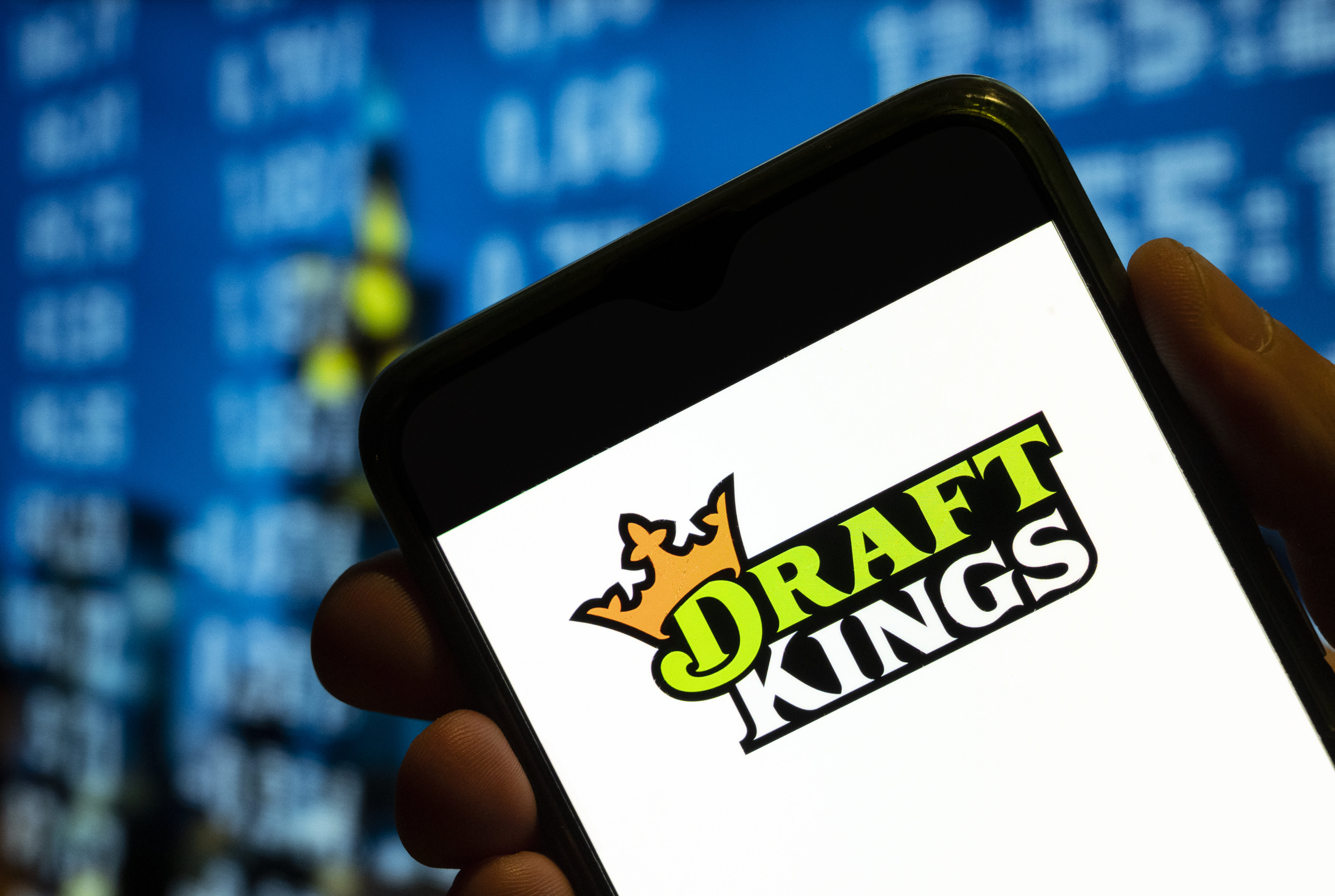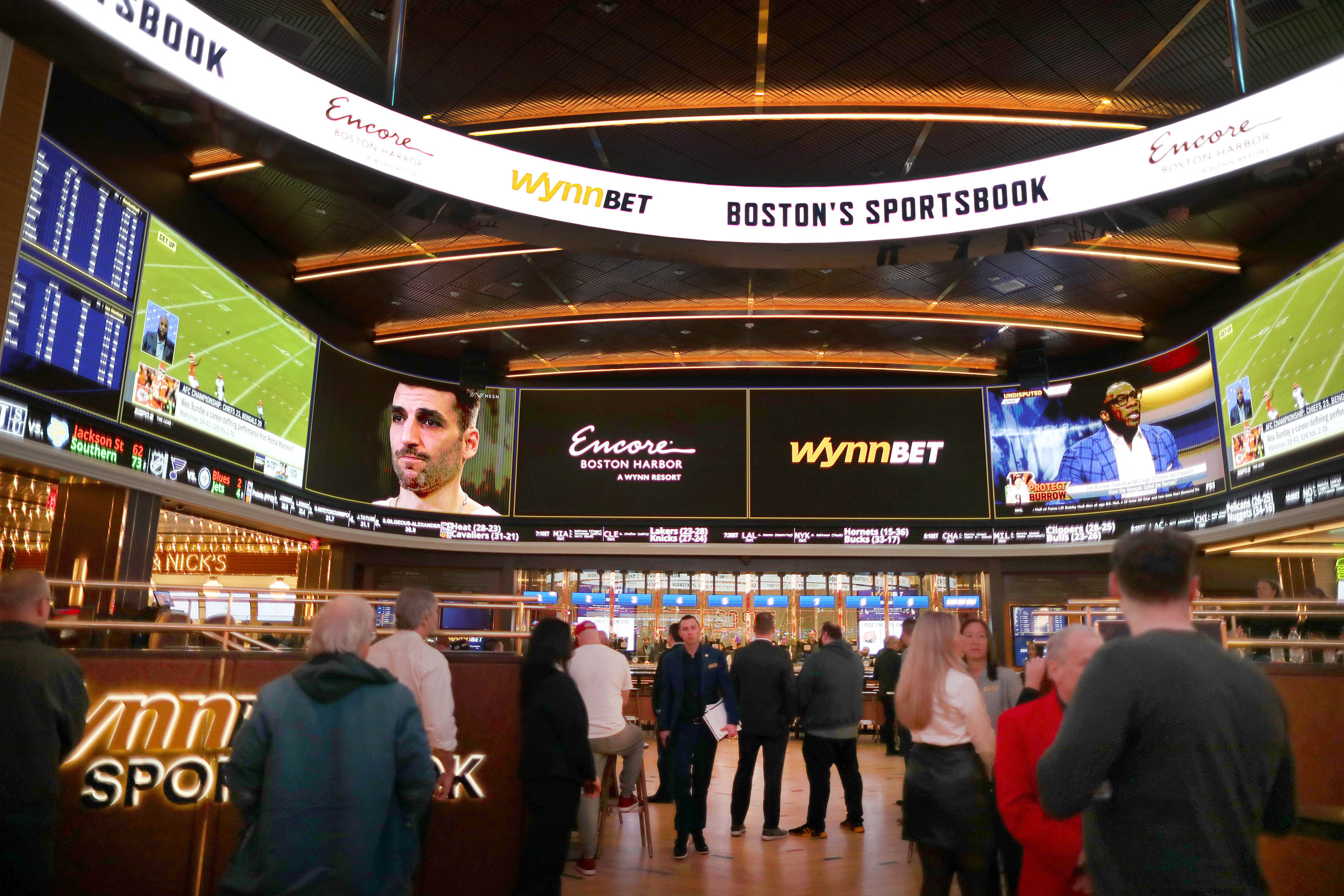
About 10 days out from the launch of mobile sports betting in Massachusetts, a new topic has zoomed up the Gaming Commission's priority list as a result of what the chairwoman called "quite a bit of written commentary and also phoned-in commentary" from industry players.
The commission held a roundtable discussion Monday to learn more about third-party affiliate marketing, an arrangement in which a company pays content websites and publishers to drive customers to its product, and how sports betting regulations it has either finalized or is working on would limit the practice in Massachusetts. After hearing from a panel made up mostly of representatives for betting companies and their marketing affiliates, regulators resolved to expedite the topic to a potential vote at their meeting Wednesday.
"We learned that our regulation might be raising issues that we weren't aware of, and whenever we learn that there might be either unexpected consequences or at least questions, we want to hear from the stakeholders who can best explain it to us," Chairwoman Cathy Judd-Stein said. "At a later time, we'll look at the regulations and decide if we want to make any changes."
The advertising regulations that the Gaming Commission promulgated on an emergency basis last month do not allow sports betting companies to enter into revenue sharing or cost-per-acquisition agreements with third-party marketing affiliates if the compensation is based on the number of people who actually sign up for an account or based on the number or amount of wagers placed because of those advertisements. The agreements would be allowed if the advertiser were paid based on the number of visits to the operator's website.
Get Boston local news, weather forecasts, lifestyle and entertainment stories to your inbox. Sign up for NBC Boston’s newsletters.
Examples of affiliate marketing in the sports betting world include websites like Action Network, which provides sports betting-related content and is paid to promote the legal sportsbooks it partners with. Local examples include Play Massachusetts and Bet Massachusetts, which have reported on the launch of legal betting here and guide bettors to legal offerings in the Bay State.
Jeff Ifrah, a Washington, D.C. lawyer who represents three affiliate marketing media companies that met with the commission Monday, said that his clients "are being discouraged from investing in Massachusetts" because they are being told by operators that they will not be compensated on any basis for the bettors they steer towards the legal and licensed sportsbooks.
"We can't afford to eliminate the affiliates who are responsible for driving 30% of these consumers to operators, because those consumers are going to be the ones who are going to be entertained on the various operator sites and generate the taxes that Massachusetts needs and scale the business and take away market share from the offshore industry, which was all part of the goal of legalizing," Ifrah said. "So what we'd like to see is a more relaxed approach which is more consistent with the majority of states. ... We'd like to keep Massachusetts in line with what the other states are doing because we think that's really the recipe for success."
On Wednesday, the Gaming Commission is expected to consider its options. The possibilities include maintaining the prohibition on most affiliate marketing, allowing the more common cost-per-acquisition (CPA) arrangements only while prohibiting revenue-sharing deals in the affiliate marketing space, and requiring marketing affiliates to seek a license from the commission.
The affiliate marketers on Monday framed their industry as a way for sports betting companies to be connected to people who have specifically sought out sports betting information and said that restricting that kind of arrangement would lead to more of the mass saturation advertising approach that annoys consumers and can lead to greater scrutiny from regulators.
When someone searches for reviews of new laptops, marketers know that the person is probably looking to buy a new computer. Search engines can then point the person to a review site, many of which are compensated for connecting customers to particular retailers or brands. Max Bichsel, vice president of GDC America, described affiliate marketing as "meeting people where they are" because the user has already taken some kind of action to show their interest, like googling for a specific topic.
"Someone who has a sore throat, Google searching something for sore throat, it makes sense to market a particular cough medicine or have some other remedy to them," he said. "Similarly, someone's searching for sportsbooks. We want to make sure that they find the best sportsbooks -- that DraftKings and FanDuel, the MGM, and the Caesars -- not an offshore operator that is not protective of the customer, not regulated by the MGC and not recognized as a good actor in our industry."
Matt Volk, chief operating officer at NESN, told the Gaming Commission that the regional sports network that features sports betting content throughout Boston Bruins and Boston Red Sox games, thinks the "CPA bounty" program is "an appropriate approach and kind of a standard business practice in the sports betting industry" because it is structured to attract people of legal betting age and compensates the marketer for successfully luring someone into the legal and taxed betting arena.
Volk said that the regulations as put forward by the commission "would have the unintended consequence of resulting in more saturation marketing, you know, the type of environment that many want to avoid."
The Gaming Commission plans to launch mobile sports betting, which accounts for as much as 85 to 95% of the legal betting market in other states, on March 10. The operators and marketing affiliates at Monday's roundtable said the sooner the commission irons out its approach to the issue, the better.
"The anticipation for March 10 will grow over the next couple days and especially through the weekend, and consumers will start searching and making queries for what's available, what's not. So it sounds like this week would be very helpful for us because there is a function of consumers and patrons registering for an account before the market opens, and these pre-registration times are usually the leading eight to 10 days before the market opens," Bichsel said. "So that would be toward the end of this week when we start to see those volumes of search queries start to ratchet up and we want to make sure that we capture those patrons and consumers effectively."




